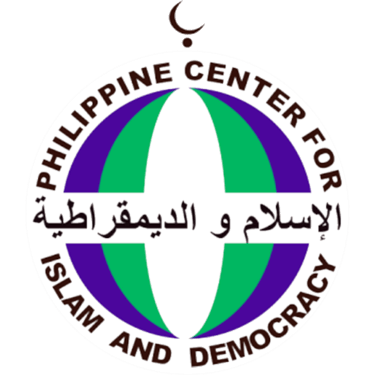Papers, Newsletters, Reports & StatementsPCID Press Statement On The SONA Of President Gloria Macapagal Arroyo
The Philippine Council for Islam and Democracy (PCID) welcomes the statement of President Gloria Macapagal Arroyo that ceasefire will be implemented in conflicted affected Mindanao. However, may we ask the President why the more than 100 people who were killed and over 700,000 persons displaced as a result of the fighting did not deserve mention during her speech?
On 23 July 2009, civil society organizations in Mindanao delivered the State of the Bakwit Address: “This war has left wounds so deep and wide and has made our lives so miserable. … We are afraid for our children. Most of the bakwits [internally displaced] are children. Many of them are no longer in school. We fear the children will learn nothing but evacuation, war and hopelessness.”
While the President conveniently forgot the humanitarian crisis that occurred under her watch, the international community did not. The Norwegian Refugee Council (2009 report) has said of the Mindanao refugees: “the Philippines was the most neglected displacement situation in 2008.”
The Amnesty International reminded us thus: “In the last eight years, hundreds of unlawful and often politically motivated killings have taken place as well as enforced disappearances, often involving torture”.
And while PCID welcomes the announcement, albeit belatedly, of the government that it will halt military offensives, we wonder how this will be implemented. It is almost ONE YEAR since the resumption of armed conflict in August 2008.
On strong economy and entrenched poverty
PCID shares the disbelief felt by the Muslims of the Philippines after hearing the ninth State of the Nation Address (SONA) boast of the “strong” economy of the Philippines. The PCID has, over the past 5 years, pointed to the true state of Muslim Mindanao, suffering from poverty and underdevelopment over 8 years since Mrs. Arroyo assumed the presidency. The Autonomous Region of Muslim Mindanao (ARMM) continues to be poorest of the poor. According to the latest Human Development Report, ARMM provinces are at the bottom standing in terms of HDI. Lanao posted 0.445, Basilan at 0.434, Maguindanao at 0.430, Tawi-Tawi at 0.332 and Sulu at 3.326. It is important to know that these numbers posted by the provinces are of the same level as African countries like Nigeria, Ghana, Mauritania and Senegal.
While we celebrate the achievements in mariculture of Tawi-Tawi Congressman Jaafar, it is far from being a province-wide success that impact on the rural poor. The capitalists, middlemen and the traders have benefitted at the expense of the impoverished fisher folks.
On strong democracy and cheating
The President stressed her defense of democracy, and said she did not get elected to be popular. The PCID, which has electoral reform as one of its advocacies, asks about one major unresolved question: the legitimacy of the last Presidential elections. While the Arroyo administration has neglected Muslim Mindanao in terms of economic development, it did pay particular attention to ARMM during elections. After all, Cotabato City and the provinces of ARMM—Basilan, Sulu, Tawi-Tawi, Lanao del Sur and Maguindanao—were at the center of the election anomalies conversation, which resulted in labeling Muslim Mindanao as the “cheating capital” of the Philippines. This is unfair because while the citizens did vote, the cheating took place after the votes were cast, prostituting the electoral system rather than respecting the will of the people.
And finally, on the “strong’ and “resilient” economy under the Arroyo administration
While it is true that the Moody’s Investors Service upgraded the Philippines’ foreign and local currency government ratings to Ba3 from B1, it is also true that it had downgraded the Philippines’ credit rating twice under the Arroyo administration, as did Standard and Poor. Worse, the Philippines’ credit rating was never downgraded during the term of former President Estrada. During former President Fidel V. Ramos’ time, the country’s credit rating was upgraded twice by both institutions.
The SONA cited the resilience showed by the country’s financial system and external payments position in the face of global crisis. How much of this resilience is due to increased OFW remittances? The Philippines is one of the world’s biggest labor exporters. Almost 8 million overseas Filipinos send remittances home, which generate foreign exchange to cover the trade deficit, repay foreign debt and finance purchases. Real estate is benefitting from remittances.
According to the Bangko Sentral ng Pilipinas, OFW remittances in May hit a new record-high of $1.48 billion, bringing the 5-month (Jan – May 2009) total remittances to $6.98 billion. If due to OFWs, who continue to leave the country in increasing numbers for want of better opportunities, how can the Philippine’s economy be strong?
Of the 8 million adults away from the country, how many are parents who have left the care of their children? What is to become of this generation of children?
The true State of the Nation lies in the State of our children: children of OFWs who dream of leaving their country, children of bakwits who dream of leaving the refugee camps so they can play in the fields, children of the poor who dream of a simple meal and a roof over their heads, children of the uneducated who dream of going to school, children of war who dream that the bombs will stop falling. All of these children are in Mindanao. These children did not deserve even a minute in the one-hour SONA.
